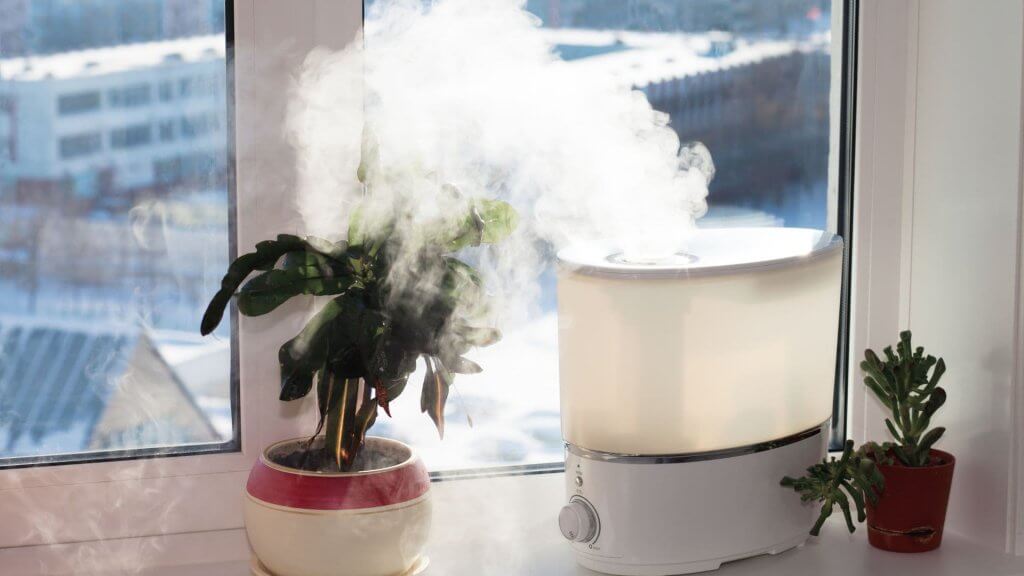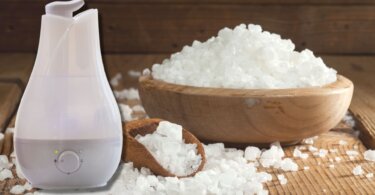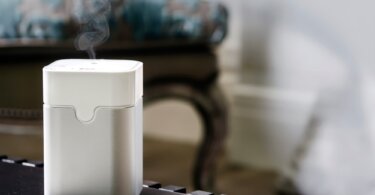The belief that using a humidifier during the winter can be beneficial to health is rooted in the idea that humidity is key to maintaining healthy respiratory conditions. In the winter, the air holds less moisture.
When the air is dry, it becomes harder for the body to combat infections, and respiratory problems can arise. Additionally, a humidifier can help people who suffer from allergies by adding moisture to the air.
People often use humidifiers in the winter to help with dry air and colds. Humidifiers work by releasing water vapor, which helps to moisturize the air and makes it more hospitable for bacteria and other microorganisms. People with allergies may also find that their symptoms improve when they use a humidifier in the winter.

What Are Humidifiers and How Do They Work?
Humidifiers are electric devices used to increase the moisture content of the surrounding air. They come in various shapes and sizes, from small tabletop models to large floor-standing units. Some humidifiers are designed to be attached to a water supply, while others rely on a refillable water cartridge.
Most humidifiers work by evaporating water into the air. The water is heated until it boils, creating steam that rises and spreads through the room. As the steam cools, it releases moisture into the air, which can help relieve dry skin, sinus congestion, and other respiratory problems.
Humidifiers can also be helpful in the winter months when the air is typically drier due to the use of heating systems. In addition to relieving respiratory problems, humidifiers can help keep your floors and wooden furniture from warping and cracking.
Related article: What Causes Low Humidity In a House?
Do I Need a Humidifier for Winters?
Winters cause air to become colder, and cold air is able to hold less moisture. This causes dry air both in your home and outside.
Dry air can result in health problems, such as dry skin, respiratory issues, and even headaches. A humidifier can help combat these issues.
When deciding if you need a humidifier for your home, the first factor to consider would be your region’s climate. If you experience low humidity levels during winter, you will likely need a humidifier.
The second factor is your home’s construction. If your home has poor insulation or leaks air, the interior of your home may be particularly dry, and you would benefit from a humidifier.
What Does Using a Humidifier Do in Winters?
Adding moisture to the air with a humidifier can:
- Help prevent dry skin, nosebleeds, and cracked lips.
- Help alleviate cold or flu congestion and keep your respiratory system healthy.
- Improve the quality of your sleep by preventing dry air from irritating your throat and nasal passages.
- A humidifier helps with snoring.
Which Type of Humidifier Is Ideal for Winter?
There are a few different types of humidifiers, but a warm-mist humidifier is typically the best option for winters.
Warm-mist humidifiers add moisture to the air around you by spraying steam created by boiling water. This humidifier effectively kills bacteria and germs, making it a good choice for people with allergies or asthma. Additionally, warm-mist humidifiers can help to prevent respiratory infections.
Cold-mist humidifiers are also available, though they can potentially do more harm than good in the winter months. Cold air has lower relative humidity than warm air, so using a cold-mist humidifier may reduce the moisture in the room rather than increase it. This can lead to respiratory problems and other health issues.
Related article: purified water vs distilled water for humidifier.
When Not to Use a Humidifier
There are benefits to using a humidifier, but there are also times when they are not advisable to use. If the humidity rating in your home is close to 50%, a humidifier may do more harm than good. The excess moisture can cause mildew to grow in the surroundings and create a risk for respiratory problems.
If you’re unsure what the humidity level is in your home, there are several ways to find out. You can buy a humidity gauge, use a hygrometer, or check the weather report to see when they expect it to rain. If it looks like rain is on the way, it’s best to keep your humidifier turned off. Note that many humidifiers these days also have an in-built humidity display.
Suppose you are experiencing an infestation of dust mites. Dust mites thrive in humidity, so a humidifier will only worsen the problem. Another reason is if you have allergies or asthma. The moist air can trigger an allergic reaction or asthmatic response in people with these conditions.
Make sure you check out our selection of Best Humidifiers for Hard Water.
Frequently Asked Questions
When should you turn your humidifier on in the winter?
You should turn your humidifier on when the temperature outside dips below 30 degrees Fahrenheit, while some recommend turning it on when the humidity level in your home falls below 30%.
Ideally, you should aim to keep the humidity level in your home between 40-50% year-round. In the winter, you need to increase the humidifier to achieve this goal if you live in an especially dry climate.
Dry air can cause several problems, including dry skin, irritated sinuses, and even bloody noses. A humidifier can help combat these issues by adding moisture to the air.
Is sleeping with a humidifier good for you?
Humidifiers are electronic devices that emit water vapor into the air. This increases the humidity in a room, which can be beneficial for your health. Here are three reasons why sleeping with a humidifier may be beneficial to you:
1. Humidifiers can help with respiratory problems such as congestion.
2. They can also help soothe dry skin and dry nasal passages.
3. Adding moisture to the air can help improve your sleep quality.
Related articles:
Can You Sleep With a Fan And Humidifier On?
Humidifier or Dehumidifier for Nasal Congestion or Stuffy Nose
Where should I place the humidifier in the winter?
Many people place humidifiers next to their beds, but this might not be the best place for them. Humidifiers can cause problems if they’re placed too close to a bed.
The moist air from a humidifier can cause dust mites to grow, and these mites can aggravate allergies and asthma. So if you use a humidifier in winter, it’s best to put it somewhere else in the room, further away from your bed.
Should I switch off my humidifier in the winter?
No, you should not turn off your humidifier in the winter. Although it may seem counterintuitive, keeping your home’s humidity level consistent year-round is essential for your health and comfort. A humidifier can keep your skin from being dry and cracked and your throat from becoming irritated. Additionally, a humidifier can help reduce static electricity in your home.
Related article: How to Use a Humidifier Without a Filter
Wrapping Up
Using a humidifier in winter can be essential to keep your health and home in check. It can help you breathe better and keep your skin and furniture from drying out. Be sure to get a humidifier that suits your needs and stick to its maintenance schedule to get the best out of your humidifier.
Related article:
What Is The Brown Stuff In My Humidifier?
Disadvantages of a Dehumidifier





Leave a Comment